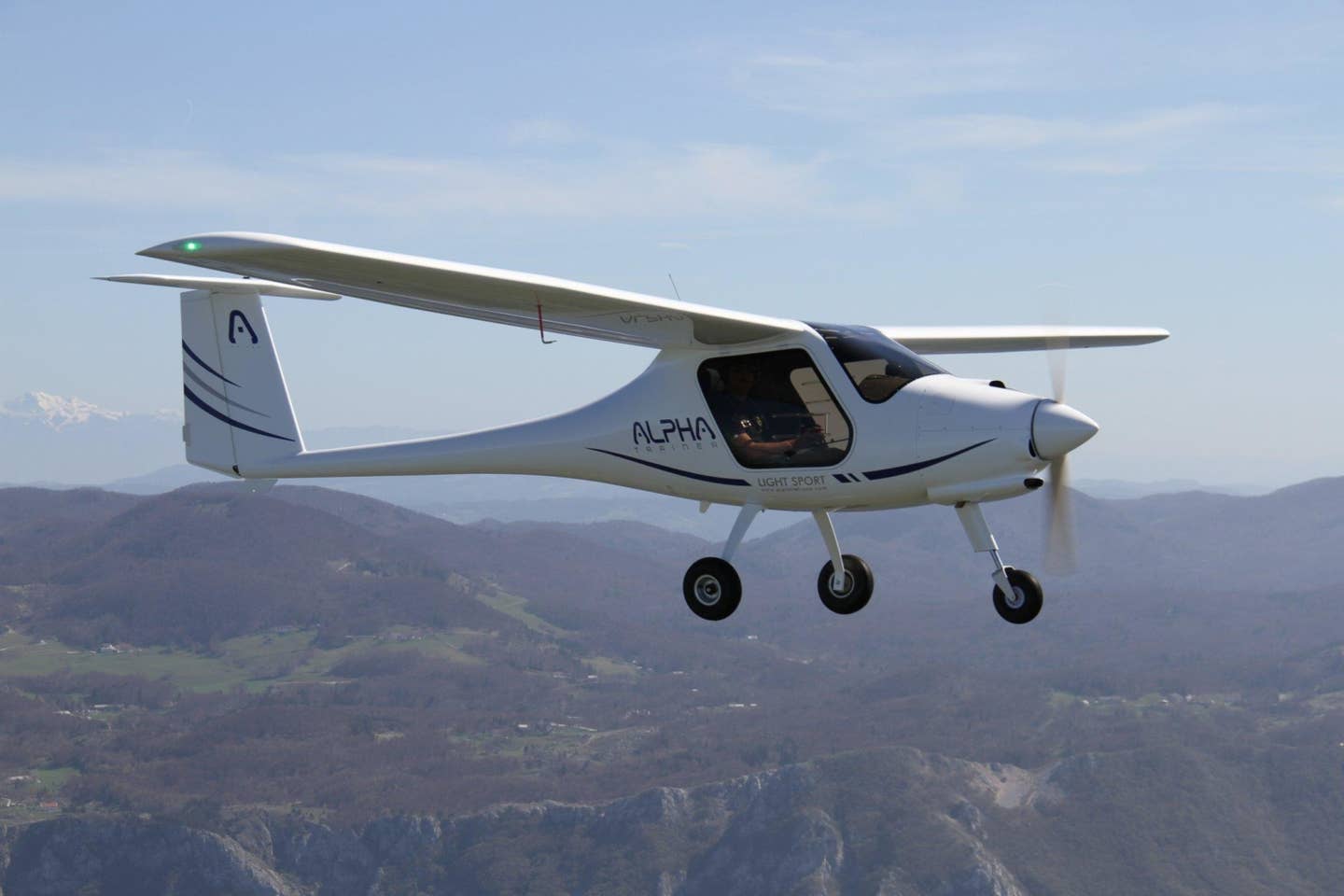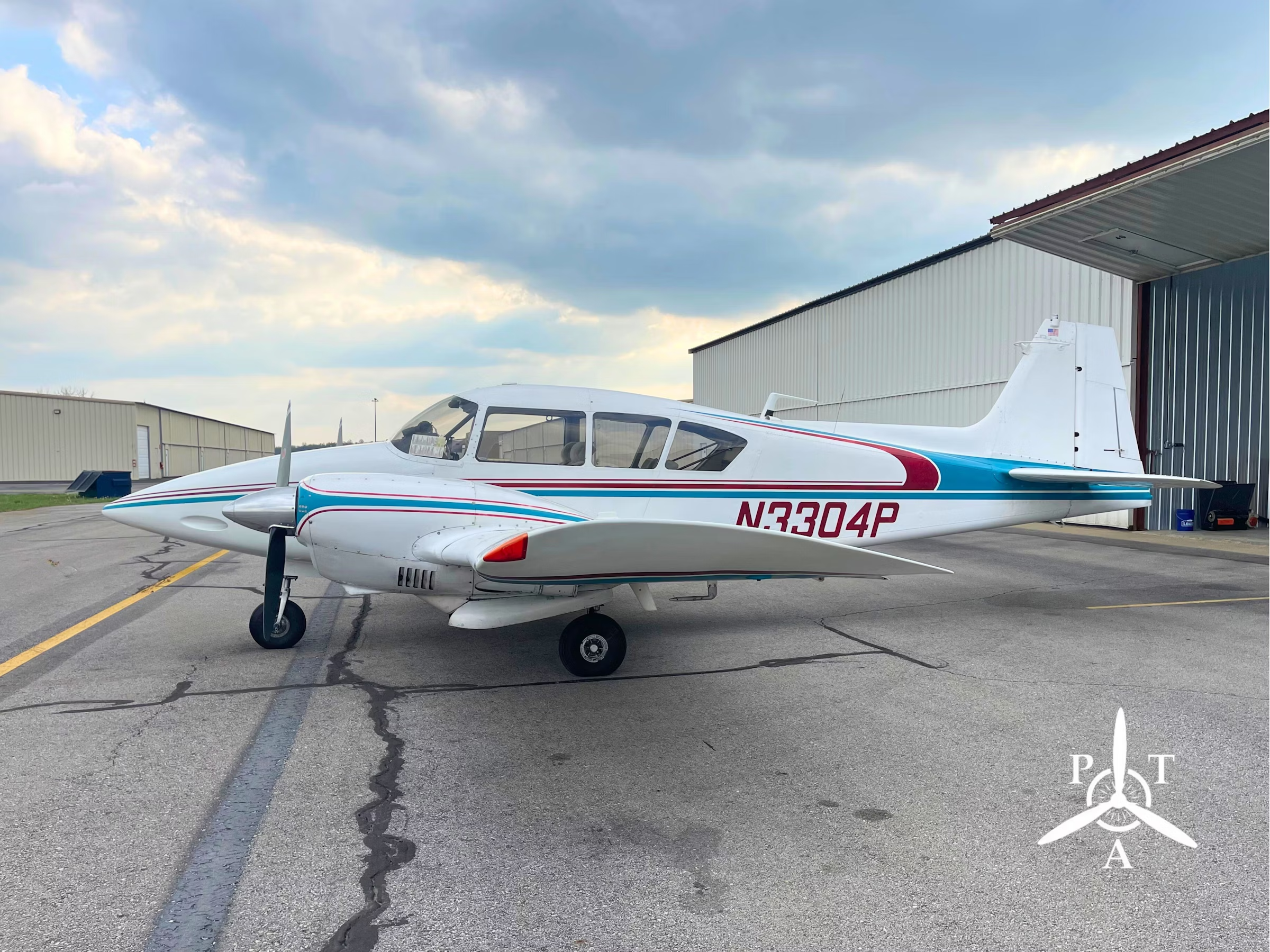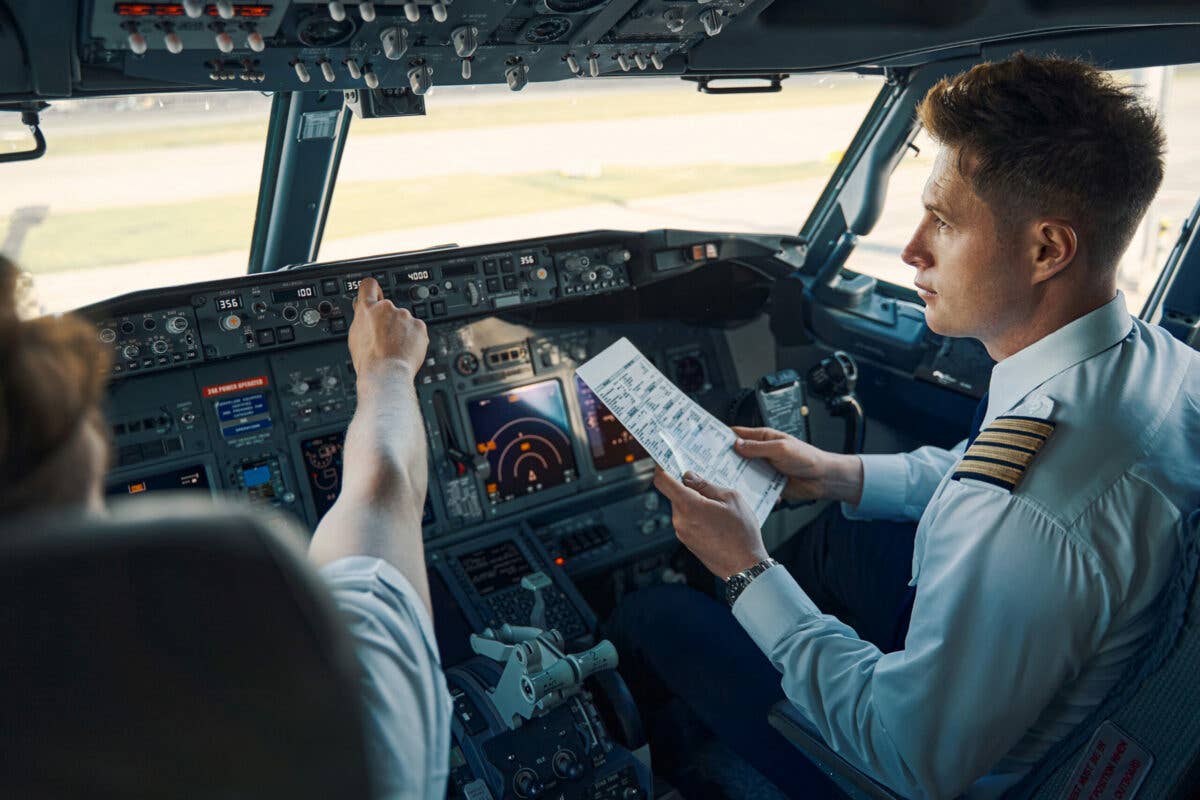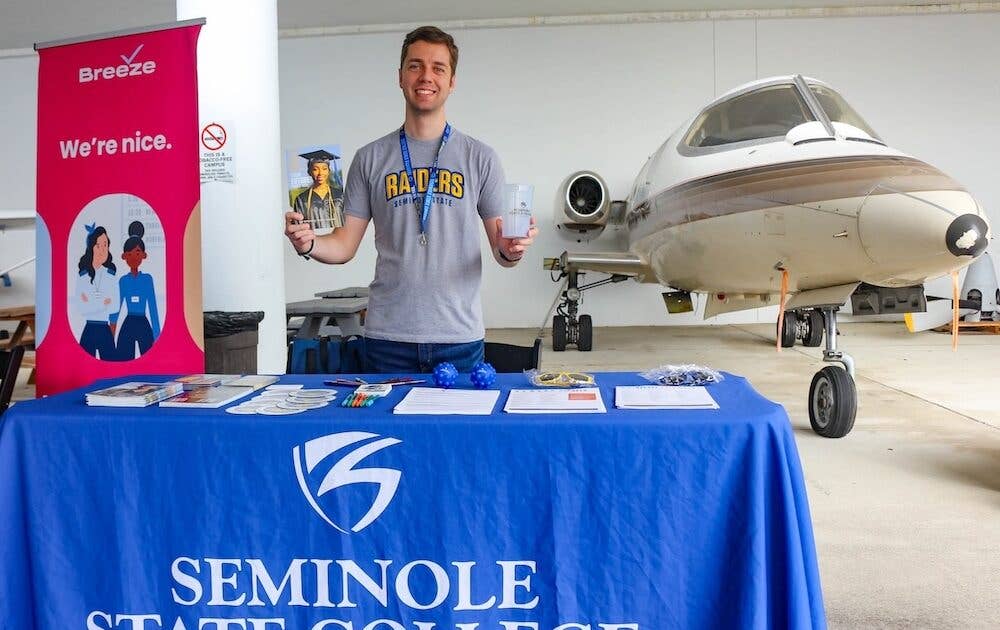Mesa Airlines Offers Path to 1,500 Hours; Pipistrel Secures Large Order
Airline Orders up to 104 Pipistrel Aircraft to Build ‘Mesa Pilot Development’ to Combat Pilot Shortage.

The Alpha Trainer 2 is a two seat, high wing, modern carbon fiber aircraft designed to be the ultimate training and time building aircraft. The design is configured by Right Rudder Aviation and built by Pipistrel Aircraft, a new addition to the Textron eAviation portfolio. Mesa Airline Cadets will use the aicraft to build flight time. [Courtesy: Pipistrel]
Mesa Airlines is taking a bold new step to ease the pilot shortage. The airline announced today that it would purchase 29 Pipistrel Alpha Trainer 2 aircraft to allow pilots in its Mesa Pilot Development (MPD) program to accumulate flight time towards gaining the 1,500 total flight time they need for an unrestricted airline transport pilot (ATP) certificate.
The investment, according to the airline, will make steps towards alleviating the pilot shortage and give pilots a direct pathway to an airline career with no out-of-pocket costs.
"The pilot shortage could become a permanent feature of the airline industry if we don't get more aviators into the system," said Jonathan Ornstein, chairman and CEO of Mesa Airlines.
As observed this summer, a pilot shortage has blocked airlines from returning to full strength even as customers' demand for commercial travel has been high from the pent-up demand as a result of the pandemic and other factors. Major airlines have had to park aircraft and cut routes because they can't find enough pilots to operate the trips.
Others, like Mesa, have given pilots large-scale wage increasess. In June, American Airlines regional partners raised first officer pilot pay to an industry-leading amount at the time—$90/hour— to keep pilots in place.
In late August, Mesa hiked first officer pay by 118 percent to $100 per hour.
However, the airline now wants to do more. The 29 aircraft are just the first part of the airline's bold bet—it will also have an option to buy 75 additional airplanes from Pipistrel to support the program.
"If there aren't enough trained pilots, customers suffer from loss of service and high-ticket prices," Ornstein explained as the impetus for this initiative.
How Does The Program Work?
Andy Chan, founder and COO of Right Rudder Aviation, the sole general U.S. distributor for Pipistrel that configures the Alpha Trainer 2, spoke with FLYING to provide some context around the deal. Beginning next month, aircraft that are part of the agreement and based in Inverness, Florida, will begin operating, expanding to Arizona in 2023. Qualified pilots can log up to 40 hours of flight time each week.
Chan explained that for pilots to qualify, they must hold a commercial pilot certificate with both single- and multiengine ratings completed. No flight instructor certificate is required.
Flying Mission Profiles
Right Rudder Aviation designed a differentiated Enhanced Safety program that allows the cadets to build flight time through proprietary "mission profiles" that they'll fly, Chan said. So, in addition to distributing the aircraft to Mesa, it will also operate them for the cadet program.
The mission profiles are time-building scenarios that Right Rudder Aviation has developed, which Chan explains are designed to expose cadets to a broader range of scenarios than they might be exposed to when working as instructors.
"We have mission profiles where they go to different types of airspace, different types of airports, different types of runways, different weather, day and nighttime conditions, and we're putting mission profiles together that allow them to continue their education as a pilot," Chan said.
Cadets will have ground training assignments as well. Using flight tracking software in the flight deck, Chan said it would also be possible to hold cadets accountable for completing mission profiles correctly, since they won't have instructors on board.
A Path to Success
Additionally, MPD pilots will begin building seniority, receive flight benefits, and gain priority for employment at Mesa Airlines. Mesa is also a United Aviate Pilot pathway partner, which means cadets will have the opportunity to end up in that mainline carrier at some point.
There is also a pathway for zero-time pilots. Chan says his company is the designated training provider for that initial training program for those who qualify.
To operate the program, Mesa said in its statement that the flight cost of $25 per hour per pilot would be fully financed by Mesa with zero interest so that cadets don't have to come out of pocket. However, upon gaining experience and joining the airline as a first officer, cadets will have to repay that expense over a three-year contract.
"We believe there is no faster way for a new aviator to enter commercial aviation and ultimately be employed at a major airline," Mesa's Ornstein said.
As of June, Mesa operated a fleet of 168 aircraft with approximately 360 daily departures as either American Eagle, United Express, or DHL Express. At full strength, the fleet would have a capacity for up to 2,000 daily hours of flying time and is expected to require more than 1,000 pilots per year to operate.
Why Pipistrel?
The Pipistrel partnership for Mesa Airlines allows it to keep expenses low because of the significant cost savings the aircraft enjoys compared to its competitors because of a lower fuel burn per hour, Chan said. He said that also means a "cleaner" operation overall.
"We're looking to enhance aviation safety through this program and the missions we're providing the cadets with to complete," Chan said. "We think it can alleviate air travel issues in the U.S.; It's an environmentally friendly option; it's a low-cost option, and it gives people a way to accelerate their career pathway.
"In every aspect, it's a win-win," he added.
Textron Aviation (NYSE: TXT) acquired Pipistrel Aircraft in April this year as a strategic move into the electric aircraft market as part of its aviation portfolio. Pipistrel was also the first manufacturer to certify a fully electric aircraft under the European Union Aviation Safety Agency (EASA) CS-23. With the Mesa deal—while this ultimately will give them a pathway to provide flight training and time building using electric aircraft—Chan said that cadets will now use avgas-powered aircraft with lower gph fuel burn than other trainers.
'The Stakes Are High'
"Our program will be the most cost-effective and one of the fastest routes to a long-term career as a professional pilot," said John Hornibrook, the senior vice president of flight operations for Mesa. "We want to make it as easy as possible for a whole new field of candidates to join Mesa, especially people who might not have traditionally considered aviation."
"Mesa's Pilot Development program is an example of the private sector working to solve the challenges created by new regulations," Ornstein said. "No other country in the world has adopted the 1,500-hour rule. This creates a situation where many foreign licensed pilots can fly over this country and into some of the world's busiest airports, even though they would not be considered experienced enough to fly a commercial aircraft by the FAA."
"Without action now, the U.S. air travel system may be snarled for the next decade," Ornstein added. "The stakes are high for both passengers and the U.S. economy."

Sign-up for newsletters & special offers!
Get the latest FLYING stories & special offers delivered directly to your inbox






